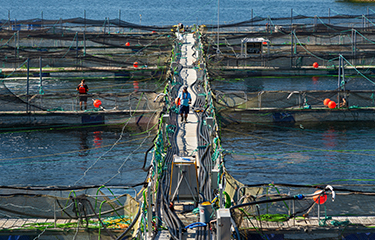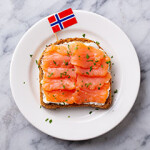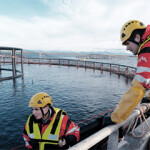BC communities say they were “blindsided” by Canada’s planned net-pen closures

Communities and government officials in the province of British Columbia, Canada, have said they were “blindsided” by the Canadian government’s decision to phase out all net-pen salmon farming in the Discovery Islands, with just 18-months’ notice.
Multiple organizations and government officials, including the B.C. Salmon Farmers Association (BCSFA) and the Northern Vancouver Island Mayors, have condemned the sudden notice, saying that the decision will risk jobs in the area and place the viability of the CAD 1.6 billion (USD 1.25 billion, EUR 1.02 billion) BC salmon farming industry in jeopardy. Canadian Member of Parliament for Tobique-Mactaquac Richard Bragdon said in a letter to the Minister of Fisheries, Oceans, and the Canadian Coast Guard Bernadette Jordan that the decision left the region with “serious concerns.”
“Your decision has had, and will continue to have, significant negative impacts on British Columbia’s salmon farm operators, their workers, and the families and communities that depend on them,” Bragdon and fellow MP for North Okanaga-Shuswap Mel Arnold wrote in the letter. “The pandemic has already made the past year difficult, reminding us all of the importance of local food security and good local jobs. Within this context, your government’s decisions and policies have added uncertainty to the lives of thousands of Canadian workers and their employers, including those affected by your Discovery Islands decision.”
The mandate to phase out net-pens in the area was in part guided by a mandate from the Canada Liberal Party’s platform, which called for a shift of all net-pen fish farming in British Columbia to land-based, closed-containment systems by 2025.
Soon after the decision, the BCSFA criticized the timing.
“This comes at a bad time, during a pandemic when local food supply and good local jobs have never been more important,” the BCSFA said in a release.
The North Vancouver Island Mayors and BCSFA, in a joint letter to Jordan – which included signees from companies such as Grieg Seafood BC, AKVA Group, Mowi Canada West, Cermaq Canada, and more – also called it poor timing, and said the decision was made without any input from the farmers themselves.
“Salmon farming is deeply integrated into the fabric of local lives and, as one of the most significant local employers, your decision has the potential to unravel the viability of North Island Indigenous and non-Indigenous communities,” the letter states. “Yet you made this decision without even speaking to the industry or locally-elected officials who deeply understand B.C.’s salmon farming communities and have a direct interest in your action. Our North Island communities deserve more from you than a hasty and confused process taken without consideration of the widespread impacts to local businesses and communities.”
The mayors and farmers, the letter states, “feel disposable and discarded.”
“When your government declared this industry essential, early in the pandemic salmon farmers stepped up and took that responsibility seriously. They kept producing food for Canadians, about 6.5 million meals worth every week. They donated more than 500,000 meals worth of salmon to food banks in our communities and across Canada,” the letter states. “Now, we feel disposable and discarded – locally-elected officials, salmon farmers, seafood processors, technology and transportation suppliers, and small-business owners.”
BCSFA Executive Director John Paul Fraser told the Coast Mountain News that the decision was made without proper care.
“No effort has been made. It is the sloppiest, most careless, thoughtless, reckless, heartless approach to a decision, and follow-up to a decision that I have ever seen,” Fraser said.
Companies farming in the region have had to make tough decisions on what to do with lost production. Of the 19 farms in the region, nine were fallow, according to Fisheries and Oceans Canada.
Grieg Global Communications Manager Kristina Furnes told SeafoodSource that the company will see a relatively low impact from the closures.
“We only have one farm in the Discovery Island area and as a result of the decision, we will instead increase production equally on other farms,” she said.
She added that future plans for Canada will remain unchanged.
“We are not changing or recalculating any plans in any of our Canadian regions per now," Furnes said.
Cermaq Canada, which also has farms in the region, deferred all comment to the BCSFA.
Now, companies, the BCSFA, and the mayors of the affected communities are all asking what the future holds for salmon farming and the livelihoods affected by its withdrawal from the region.
“So, we ask: What is your plan now to help our communities recover from your decision? What is your government willing to commit at this stage, and beyond, to help us pick up the pieces for the people who live, work, and take care of their families here on our coast?” the joint letter states. “Be advised that we will no longer sit on the sidelines and will be pursuing every possible option to remedy this untenable situation. For the sake of the North Island families and communities we support, we must do everything we can to protect their future.”
Photo courtesy of Alexander Gold/Shutterstock






Share